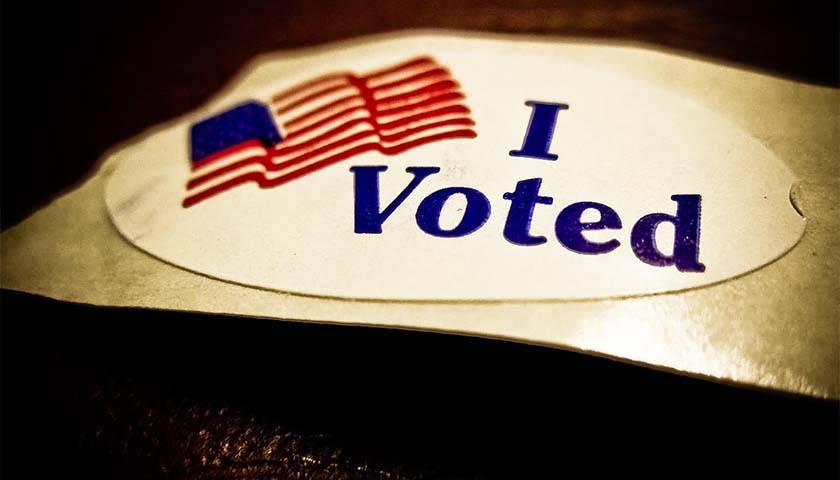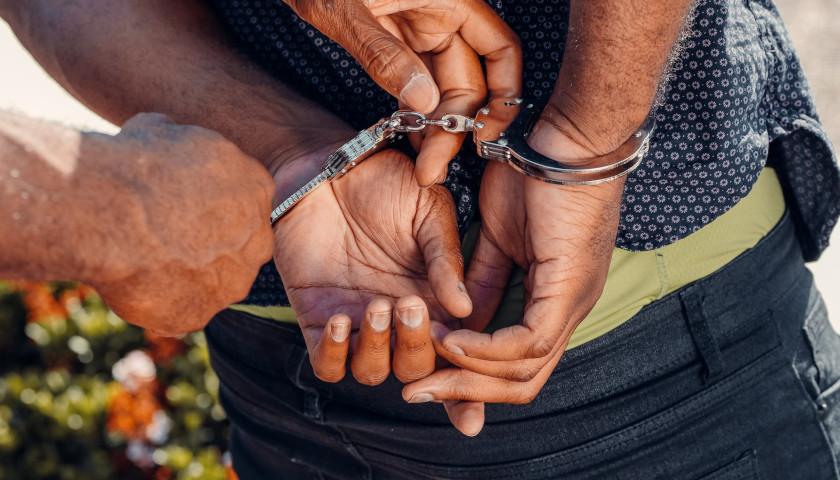by Natalia Mittelstadt
North Carolina, Texas, Maricopa County,
Tens of thousands of non-citizens have tried or made it onto voter rolls across the U.S. over recent years, according to an election watchdog’s analysis of data from several states.
Non-citizen voters have been found on voter rolls in North Carolina, Pennsylvania, Texas and Maricopa County, Arizona. In Georgia, there were non-citizens who attempted to register to vote but were placed in a pending status because there wasn’t evidence of their citizenship, so they didn’t make it onto the voter rolls.
“Pennsylvania has been covering up for years, the tens of thousands of aliens who got on the voter rolls there for 20 years,” J. Christian Adams, president of the watchdog group Public Interest Legal Foundation, told “Just the News, No Noise” TV show this week, while also saying acting Pennsylvania Secretary of State Al Schmidt “knows the truth and won’t tell it.”
In 2017, Schmidt, a Republican who was a Philadelphia city commissioner at the time, told a Pennsylvania Senate committee that there were over 100,000 matches of voter registration records to state driver’s license numbers with Immigration and Naturalization Service indicators.
The matches don’t mean that all of those people were registered to vote, but Schmidt argued: “We’re not talking about an insignificant number here. We’re talking about a potentially very significant number of thousands and tens of thousands.”
The Pennsylvania Department of State announced in September 2017 that records indicated 1,160 non-citizens had since 1972 requested their voter registrations be canceled.
Adams said the “vast majority” of non-citizens “are motor voter registrations” – referring to the 1993 National Voter Registration Act that made it easier for people applying for a driver’s license to also register to vote.
The second most-common way for non-citizens to get onto voter rolls is third-party registration drives by nonprofits, Adams said.
He also said that when non-citizens go to a Department of Motor Vehicles office, many of them “lie,” saying they are U.S. citizens, and “get registered” to vote.
“Some people, guys, say, ‘no,’ and they still get registered to vote,” Adams said. “I’ve just got stacks of voter registration forms. People will actually say, ‘no, I’m not a U.S. citizen.’ They still get on the voter rolls.”
PILF originally sued Pennsylvania in 2018 to obtain its voter list records.
The group said last year it did so after the commonwealth’s “publicly admitted that due to an alleged programming ‘glitch’ the Pennsylvania Department of Transportation had allowed foreign nationals to register to vote for decades.”
The election integrity law firm also said at the time it “sought the voting history of more than 1,100 non-citizen registrants who self-reported their ineligibility and requested cancellation of their voter registrations.”
In March 2022, the U.S. District Court for the Middle District of Pennsylvania ruled the commonwealth was required to provide PILF with the records, but the commonwealth has appealed the decision.
The Pennsylvania Secretary of State’s office didn’t respond to a request for comment Monday.
A PILF report published last month on voter roll records in Arizona’s Maricopa County found 222 foreign nationals’ voter registrations have been canceled since 2015, with nine of them casting 12 ballots over four federal elections.
The most likely reason for a foreign national to admit that they have been registered to vote is that “they want to remain in the United States as future naturalized citizens,” according to the report.
In the naturalization application process, foreign nationals are asked whether they have prematurely registered to vote. If there are voter registration records, then “they are often ordered by immigration officials to get said records cancelled.”
Adams said Monday that non-citizens looking to naturalize are told to get themselves “off the rolls or you’re never going to.”
He also said hundreds of self-reporting foreign nationals who were registered to vote in Maricopa County are just “the tip of the iceberg, because there’s gonna be lots of people who don’t write in and say, ‘I’m a non-citizen.'”
North Carolina is another state in which non-citizens have been on voter rolls, Adams said.
In January last year, PILF and North Carolina reached a settlement following a lawsuit by the election integrity watchdog for the state to release voting records from non-citizens.
“These records conclusively show that foreigners have been registering to vote and are voting in North Carolina elections,” Adams said at the time. “It is a shame our efforts to disclose these records were met with such resistance by election officials.”
In Georgia, an audit by Secretary of State Brad Raffensperger (R) found last year that over 1,600 non-citizens tried to register to vote.
“[W]hat I found is we had 1,634 that were never put on the voter rolls, they were in the pending status, because they couldn’t prove their citizenship,” Raffensperger last year told the “John Solomon Reports” podcast. “That’s a felony in Georgia to even attempt to register if you’re a noncitizen. And that’s a one to 10-year prison term, and up to a $100,000 fine.”
Prior to Georgia’s audit, at the end of 2021, then-Texas Secretary of State John Scott (R) released the results of the first phase of his audit of the states’s voter rolls, which found that 11,737 potential non-U.S. citizens were identified as being registered to cast ballots, with many located in the counties around Texas two largest cities of Houston and Dallas.
In Wisconsin, former state Supreme Court Justice Michael Gableman wrote a report on the 2020 presidential election in which he found non-citizens had made it onto the state voters rolls in violation of state law.
The Wisconsin Election Commission failed to “record non-citizens in the WisVote voter database, thereby permitting non-citizens to vote, even though Wisconsin law requires citizenship to vote – all in violation of the Help America Vote Act,” the investigator wrote.
– – –
Natalia Mittelstadt is a reporter at Just the News. Mittelstadt graduated from Regent University with Bachelor of Arts degrees in Communication Studies and Government.
Photo “A Crowd of People” by islandworks.
Photo “I Voted” by Vox Efx. CC BY 2.0.





No surprise here. States that allow illegals to get a drivers license, or vote in local elections, are breeding grounds for voter fraud, and the state knows it, yet does nothing about it. This is especially true in democrat controlled states.